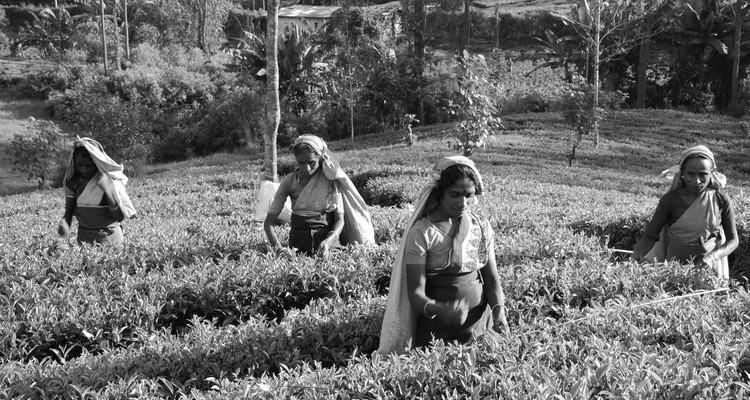Sri Lanka, a pioneer of organically certified tea in the world market, has expanded its product range to many non traditional agricultural products and today exports approximately 1,400 MT of organic products per annum, valued at USD 228 mn.
By Malani Baddegamage
Note: To find details of organic ingredient suppliers and organic shops in India, buy the Organic Directory
Organic agriculture accounts for 4.04% of the total agricultural land in Sri Lanka. Approximately 78,500 hectares of land was under organic production at the end of year 2015—of which nearly 62,000 ha is organically certified.
Sri Lanka, after introducing organically certified tea to the world market, expanded this product range to non traditional agricultural products such as spices, essential oils, herbs, desiccated coconut and other coconut based products, oil seeds, pulses, cashew, tropical fruit, rice and vegetables. Today, Sri Lanka exports around 1,400 MT of organic products per annum, valued at USD 228 mn.
Many companies have adopted the Fairtrade concept to ensure the socio-economic standards of small organic farming communities. One such example is Bio Foods, a Fairtrade registered exporter and initiator of the Small Organic Farmers’ Association (SOFA) project, which has already been recognised as one of the best sustainable models in Sri Lanka. Another is Lanka Organics, which is the first company in the world to have achieved a Fairtrade certificate for exporting varieties of spices.
THE FOUNDATION
A strong institutional structure is one of the pillars of Sri Lanka’s flourishing organic industry and can be categorised into the following:
Producers: Individuals and private sector companies are the main groups of producers. In many cases, individual farmers are grouped under NGOs, farmer associations or cooperative bodies.
Organisations: Organisations have played a key role in the organic sector. These include farmer associations; community based organisations, as well as, non government organisations. Some of them work broadly in the organic sector while others target specific crops such as traditional rice varieties.
National Movements: Lanka Organic Agriculture Movement (LOAM), founded in 1994, is the pioneer association related to policy development in the sector. The Small Organic Farmers’ Association (SOFA) is a recently formed association of organic farmers, who are engaged in the industry on a small scale.
PRIVATE SECTOR
Receiving support from the government, private companies have undertaken initiatives to develop certified organic projects and bolster demand for their products in the international market. Besides large plantations, there are many small growers involved in organic crop production under the supervision of certified export companies.
Sri Lankan companies engaged in organic production strictly follow globally accepted sustainable organic farming principles, being socially just, economically viable, environmentally friendly, culturally sensitive and transparently accountable within their farmer communities. Many companies have adopted the Fairtrade concept within organic production to ensure the socio-economic standards of small organic farming communities. One such example is Bio Foods, a Fairtrade registered exporter and initiator of the SOFA project, which has already been recognised as one of the best sustainable models in Sri Lanka. Another is Lanka Organics, which is the first company in the world to have achieved a Fairtrade certificate for exporting varieties of spices.
INTER-SECTOR COLLABORATIONS
Successive governments have worked towards developing the sector, and government officials have been coordinating with stakeholders in order to promote the organic industry. The recent initiatives taken by the Sri Lankan government towards a gradual turnaround from the use of imported agrochemicals to locally produced organic and biofertilisers will also accelerate the country’s movement in the direction of organic agriculture.
Furthermore, the private sector has been facilitating the growth of the organic movement and collaborating with national movements like LOAM.
In the research sector, universities and government research institutions are sharing their experiences and findings with the key stakeholders. A number of universities have also initiated various courses on organic agriculture and some have integrated organic agriculture into their syllabi to educate farmers and spread greater awareness.
Lobbying was a major reason behind the development of the sector and integration of organic agriculture to the National Agricultural Policy in 2001 was one of the many notable contributions. The guidelines for certification, which were prepared in 2005, were also a result of lobbying by NGOs in the country.
ORGANIC CERTIFICATION ACCREDITATIONS
The use of laboratories, inspection and certification bodies that have been accredited by international agencies and mechanisms for verification of the authenticity of certifications and reports by regulatory bodies help build trust and confidence among trading partners. These systems facilitate market access, comparability and competition on equal terms, which is why Sri Lanka has set up a strong framework for certifications. The Sri Lanka Accreditation Board (SLAB), with internationally recognised mutual re-organisation arrangements, provides the required assurance to facilitate international trade.
Sri Cert is a local partner of the International Certification Alliance, which assists organic growers in Sri Lanka to get internationally accredited inspection and certification services at a reasonable cost.
In the current scenario, the following 7 international certification agencies operate in Sri Lanka.
- Control Union (SKAL, Netherlands)
- National Association for Sustainable Agriculture, Australia (NASAA)
- Naturland, Germany
- Institute for Market Ecology – IMO, Switzerland
- Ecocert, Germany
- Organic Farmers and Growers Ltd, United Kingdom
- Demeter and Bio Suisse, Switzerland
Internal control system for organic smallholder farmers is commonly practised by certifiers in Sri Lanka. This is under the supervision of the particular certification company.
 The author is director of the Export Agriculture Division at the Sri Lanka Export Development Board
The author is director of the Export Agriculture Division at the Sri Lanka Export Development Board



Leave a Reply